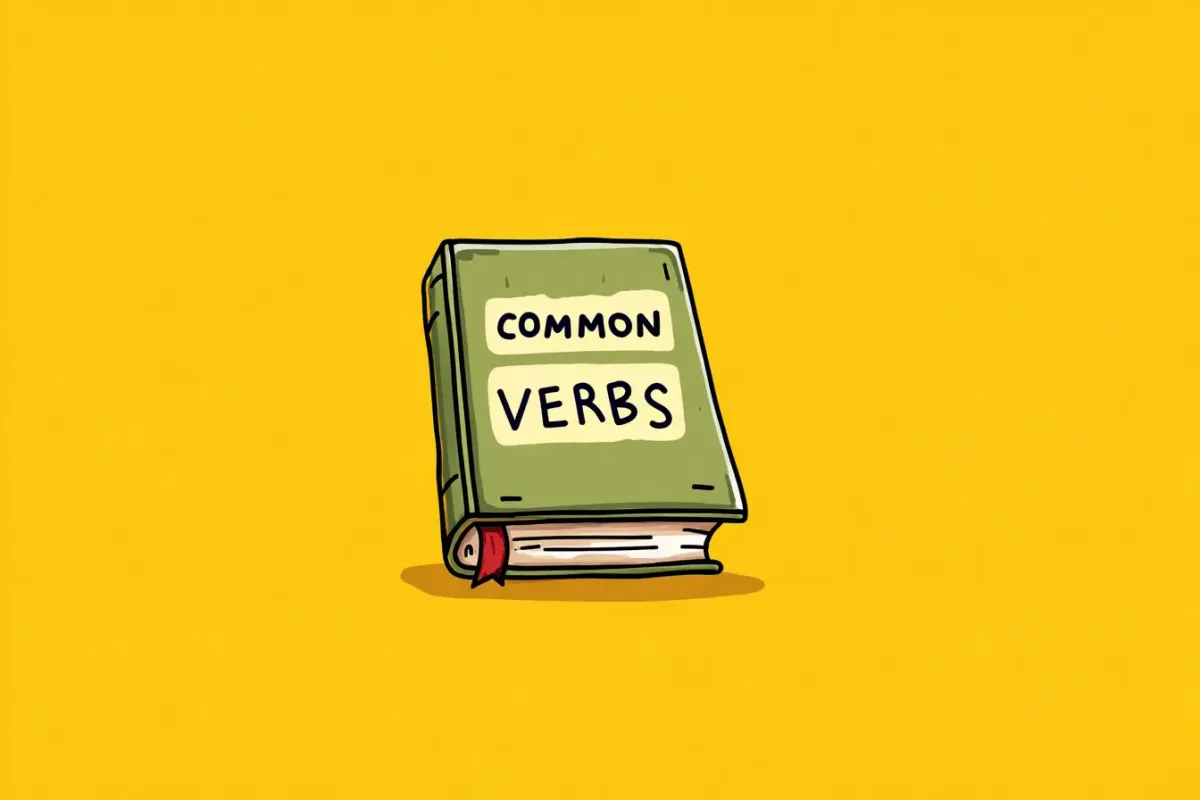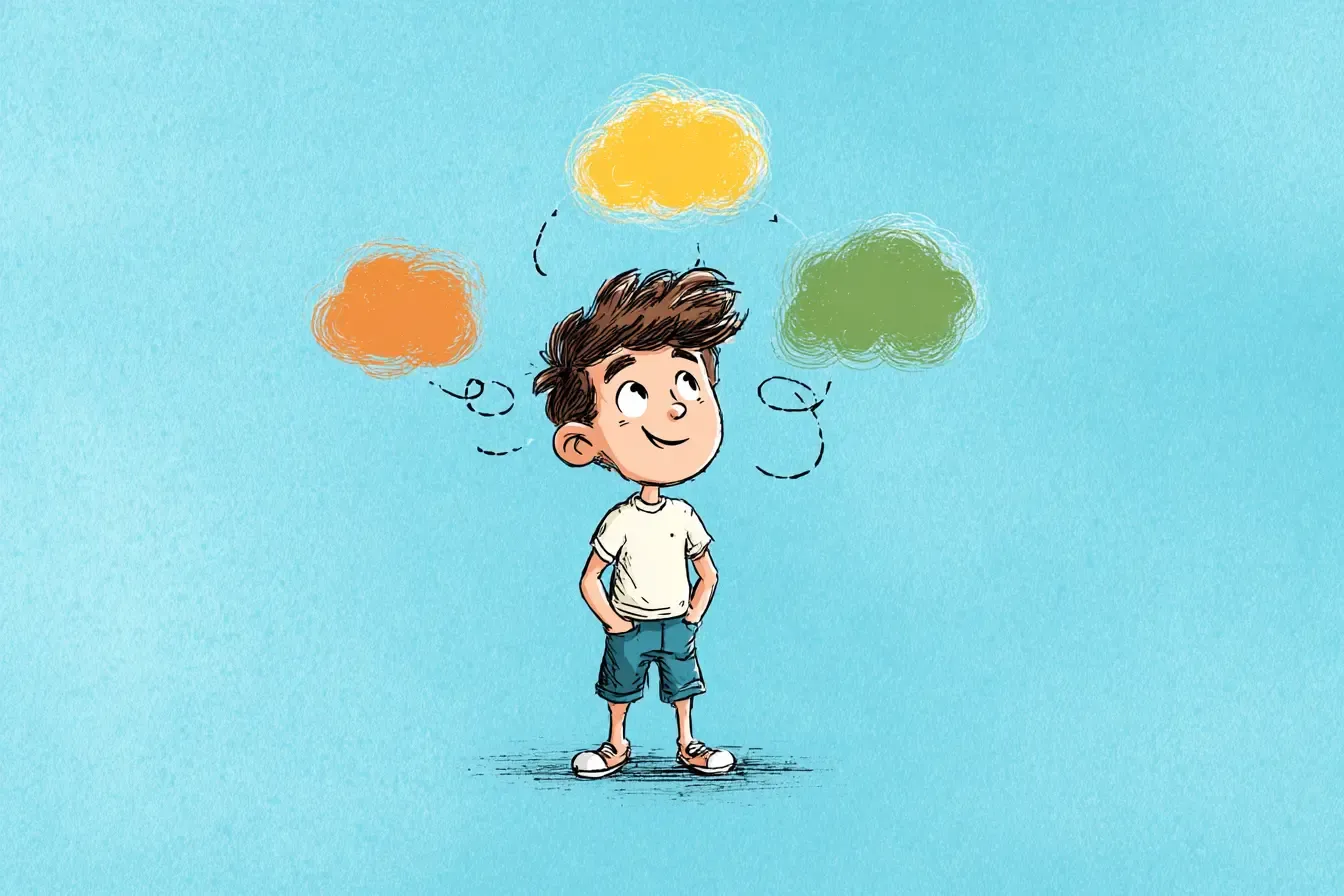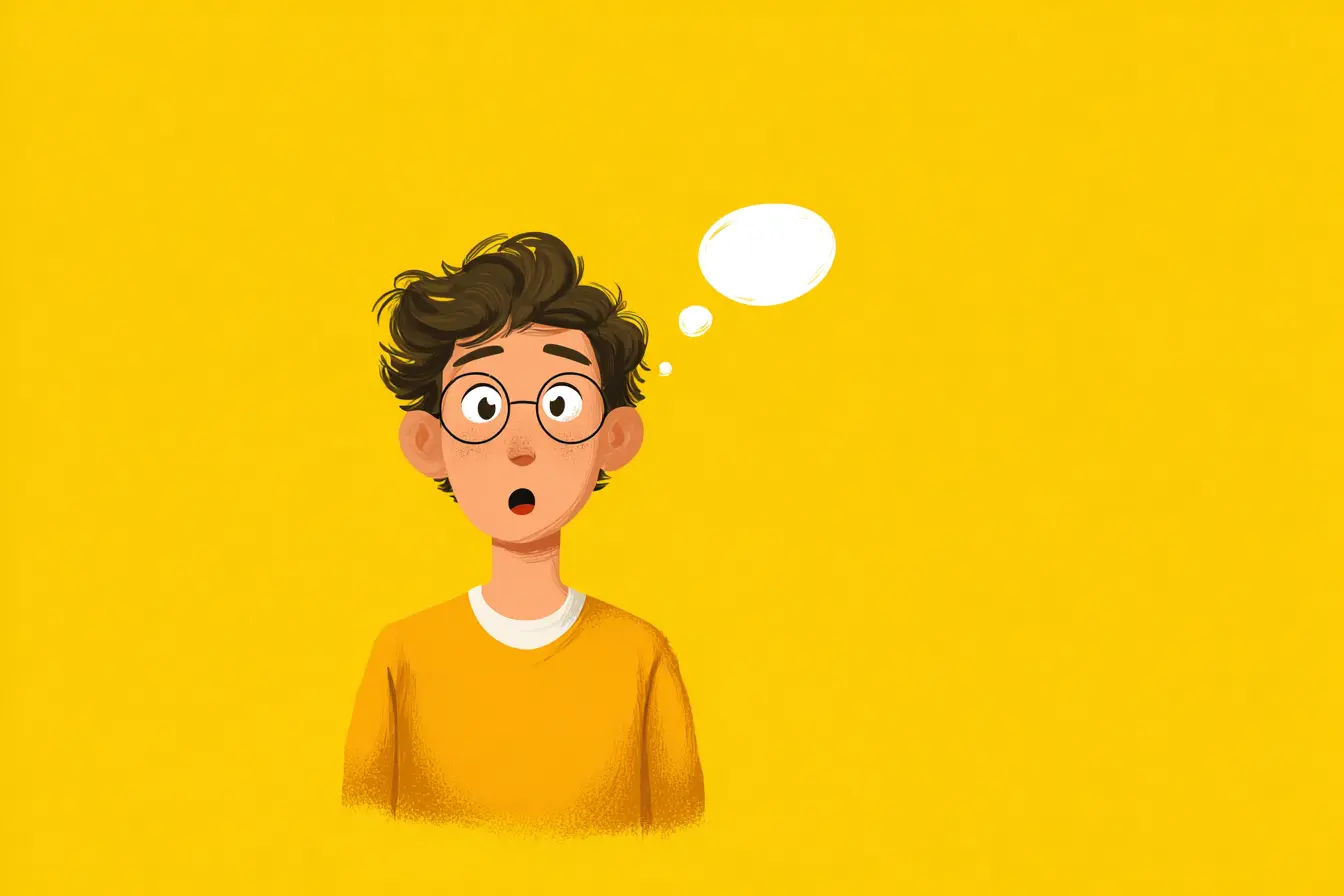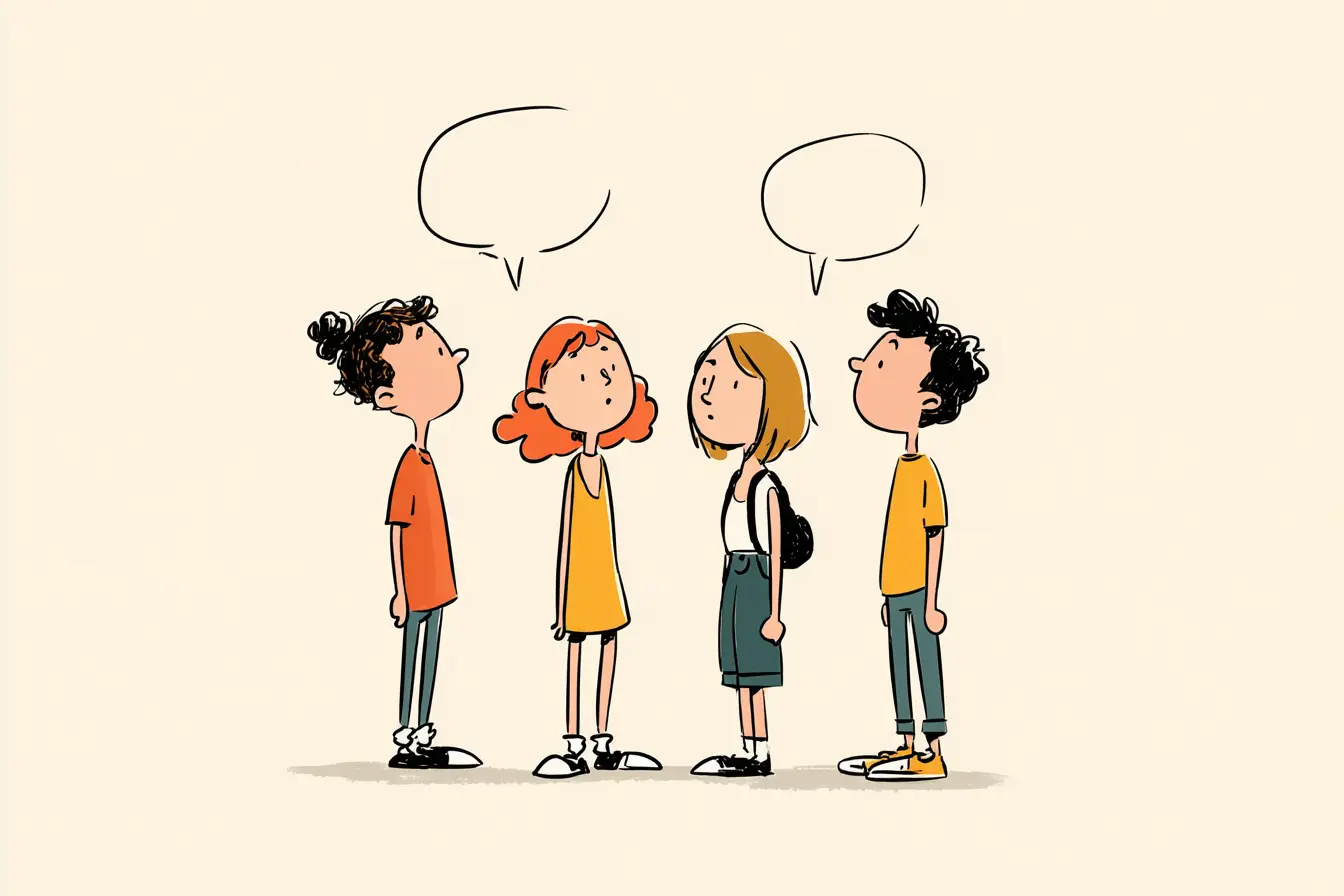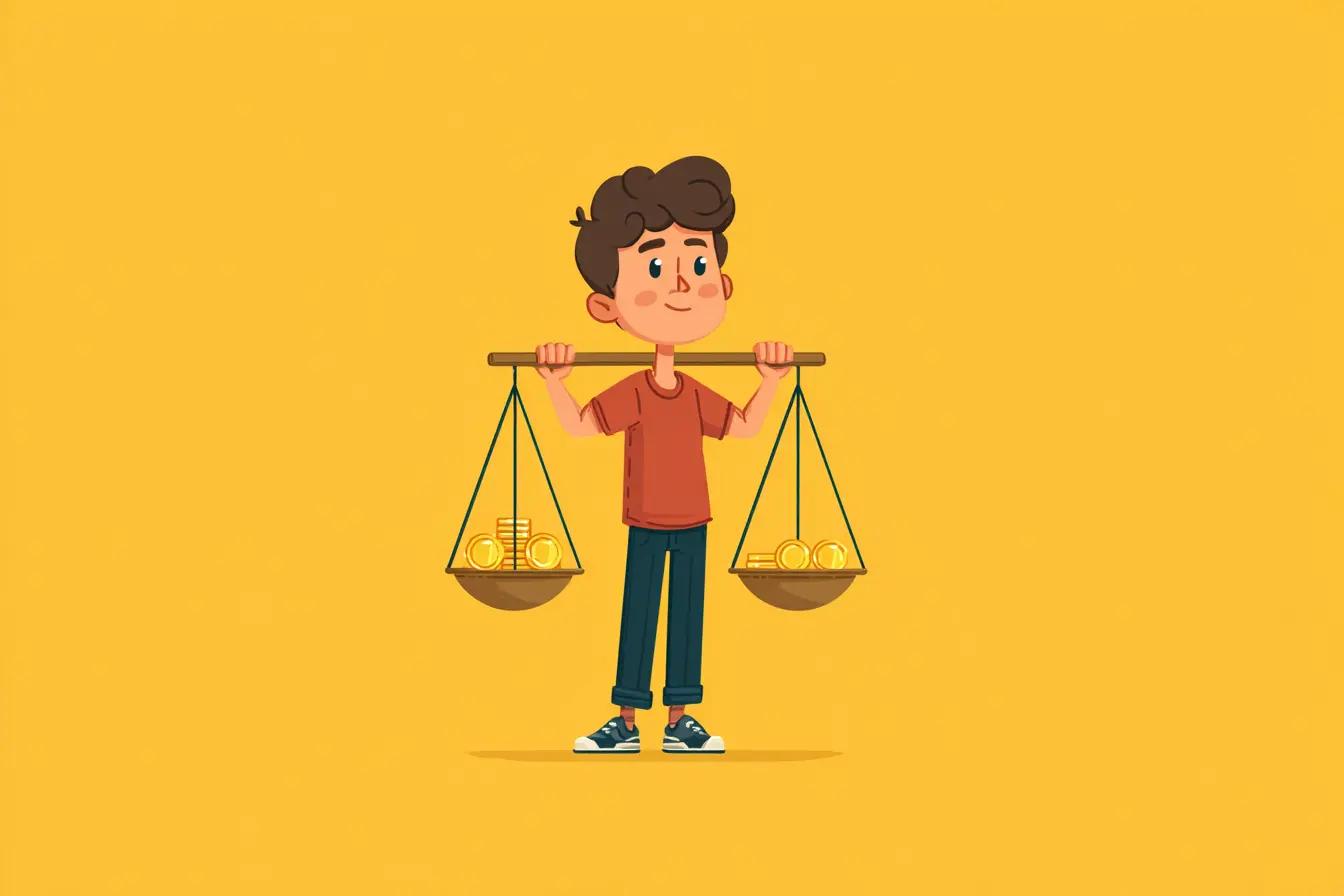When you start learning English, verbs are the first real building blocks of communication. They’re the words that let you say what you do, what you want, or how you feel. The good news? You don’t need thousands of them to get started. Just a small group of the most used verbs already covers a huge part of everyday conversations.
Think of these verbs as the “toolkit” of English: simple, short, and endlessly practical. In fact, if you focus on around 30 verbs for daily use, you’ll have a strong foundation to start expressing yourself in most everyday situations. These are the important verbs that appear in films, songs, books, and, most importantly, real conversations.
Quick Recap: 30 Most Common English Verbs
Here’s a clear, at-a-glance list before we dive into details:
The Core Verbs You’ll Hear Everywhere
Now let’s explore these basic verbs in English one by one with examples across main tenses. You’ll see why they are the backbone of communication: they’re short, flexible, and incredibly frequent.
Be
Identity, description, and states.
- Present: I am happy. / They are students.
- Past: She was late. / We were tired.
- Future: I will be there tomorrow.
- Present perfect: He has been my friend for years.
Have
Possession, experiences, and helper in perfect tenses.
- Present: I have a bike. / She has time.
- Past: They had fun yesterday.
- Future: We will have a meeting.
- Present perfect: I have had enough.
Do
General actions and auxiliary in questions.
- Present: I do exercise. / Do you like music?
- Past: She did her homework.
- Future: I will do my best.
- Present perfect: We have done everything.
Say
Words spoken aloud.
- Present: They say it’s important.
- Past: He said hello.
- Future: I will say a few words.
- Present perfect: She has said this before.
Get
To receive, obtain, or become.
- Present: I get emails daily.
- Past: He got a promotion.
- Future: You will get results soon.
- Present perfect: We have gotten used to it.
Make
Creation and results.
- Present: I make dinner every day.
- Past: She made a mistake.
- Future: They will make a plan.
- Present perfect: We have made progress.
Go
Movement and travel.
- Present: I go to work at 8.
- Past: We went shopping.
- Future: She will go abroad.
- Present perfect: I have gone there before.
Know
Facts and familiarity.
- Present: I know this song.
- Past: She knew the answer.
- Future: You will know soon.
- Present perfect: I have known her for years.
Think
Opinions and ideas.
- Present: I think it’s true.
- Past: He thought of a plan.
- Future: I will think about it.
- Present perfect: They have thought everything through.
Take
Carry, accept, or use.
- Present: I take the bus.
- Past: She took a photo.
- Future: We will take a break.
- Present perfect: He has taken great pictures.
See
Vision and understanding.
- Present: I see a bird.
- Past: We saw a rainbow.
- Future: You will see soon.
- Present perfect: I have seen that movie.
Come
Arriving or moving closer.
- Present: Come here!
- Past: They came late.
- Future: He will come tomorrow.
- Present perfect: I have come to help.
Want
Desires and wishes.
- Present: I want pizza.
- Past: She wanted a break.
- Future: They will want an answer.
- Present perfect: I have always wanted to travel.
Look
Appearance and directed vision.
- Present: You look happy.
- Past: She looked outside.
- Future: I will look for it.
- Present perfect: We have looked everywhere.
Give
Offering or transferring.
- Present: I give advice.
- Past: She gave me a gift.
- Future: They will give a speech.
- Present perfect: We have given enough chances.
Use
Application or operation.
- Present: I use my phone daily.
- Past: He used a dictionary.
- Future: She will use this method.
- Present perfect: We have used all the paper.
Find
Discovery or realization.
- Present: I find this easy.
- Past: She found her keys.
- Future: You will find the answer.
- Present perfect: They have found a solution.
Tell
Speech directed to someone.
- Present: Tell me the truth.
- Past: He told a story.
- Future: I will tell you tomorrow.
- Present perfect: She has told me many times.
Work
Effort or job.
- Present: I work in IT.
- Past: They worked late.
- Future: We will work harder.
- Present perfect: She has worked there for years.
Call
Naming or contacting.
- Present: Call me later.
- Past: They called the dog Max.
- Future: I will call tomorrow.
- Present perfect: She has called three times.
Try
Attempting or testing.
- Present: I try my best.
- Past: He tried again.
- Future: We will try tomorrow.
- Present perfect: They have tried many times.
Ask
Questions or requests.
- Present: Ask me anything.
- Past: She asked politely.
- Future: I will ask him later.
- Present perfect: We have asked enough questions.
Need
Necessity.
- Present: I need water.
- Past: She needed help.
- Future: They will need time.
- Present perfect: I have needed this for a while.
Feel
Emotions and sensations.
- Present: I feel tired.
- Past: She felt happy.
- Future: You will feel better soon.
- Present perfect: I have felt this way before.
Become
Transformation or change.
- Present: He becomes nervous easily.
- Past: She became a doctor.
- Future: They will become famous.
- Present perfect: It has become a problem.
Leave
Departing or letting go.
- Present: I leave at 8.
- Past: She left early.
- Future: We will leave tomorrow.
- Present perfect: They have left already.
Put
Placing or positioning.
- Present: Put it on the table.
- Past: She put the book down.
- Future: I will put it away.
- Present perfect: He has put on weight.
Mean
Significance or intention.
- Present: What does this mean?
- Past: She meant no harm.
- Future: It will mean a lot to me.
- Present perfect: This has meant so much.
Keep
Continue or hold.
- Present: Keep smiling.
- Past: She kept a diary.
- Future: We will keep trying.
- Present perfect: I have kept my promise.
Let
Permission or allowance.
- Present: Let me help you.
- Past: She let me borrow the book.
- Future: I will let you know.
- Present perfect: They have let us down before.
If you master just these simple 30 verbs, you’ll notice a big change in how natural and confident your English feels. They’re the shortcut to fluency: practice them, mix them, and watch your sentences come alive.
FAQ
What are the most used verbs in English?
Studies of spoken and written English show that verbs like be, have, do, say, get, make, go, know, think, take, see, come, want, look, give, use, find, tell, work, and call are among the top. These verbs cover everyday needs like describing people, talking about actions, sharing opinions, and asking questions. Learning them first gives you the biggest return for your effort.
How many verbs are there in English?
English has over 25,000 verbs if you count all forms and variations, though the exact number depends on how you classify them. The majority are not used often, and many are highly technical or specific to certain fields. In daily life, however, a few hundred verbs are enough to understand most conversations, and about 30–50 core verbs already let you start speaking confidently.
How can I practice the most common verbs effectively?
Start by learning them in full sentences, not in isolation. For example, instead of memorizing take, practice phrases like take a bus, take a break, take care. Write short dialogues, read them aloud, and change the tense (I take… / I took… / I will take…). Listening to songs, TV shows, or podcasts also helps because these verbs are repeated constantly in natural English. Daily repetition is key — use them actively and they’ll quickly become second nature.


